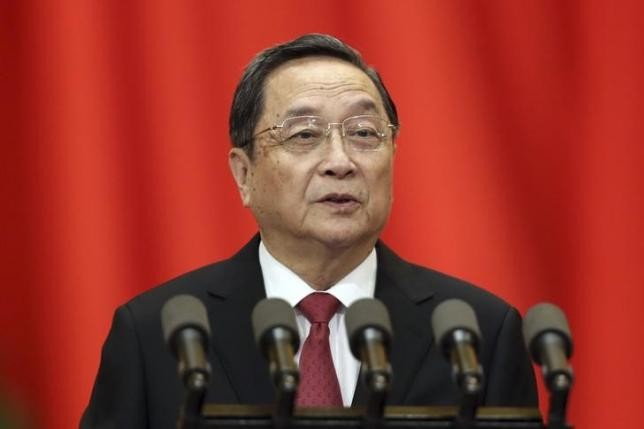As part of mainland China's efforts to boost exchanges across the Taiwan Strait, it is set to lift its entry-permit requirement for Taiwan residents, top political advisor Yu Zhengsheng stated on Sunday.
Yu announced the plan during his speech at the 7th Straits Forum held in Xiamen, Fujian Province. It is regarded as the largest annual gathering dedicated to cross-Strait exchanges.
"We'll continue to expand people-to-people exchanges across the Strait and engage more Taiwan compatriots in the trend of cross-Strait interaction," Yu, chairman of the National Committee of the Chinese People's Political Consultative Conference, remarked.
To date, Taiwan residents are required to apply for an entry permit, similar to a visa, in order to visit the mainland.
Yu said that the Taibaozheng, a passport-like paper carrying entry permits for Taiwan compatriots or Taibao, will also be made into a card. This document is also an identification during a Taiwanese's stay on the region.
The mainland and Taiwan cut their communication back in 1949 when the Communist Party of China emerged victorious over the Kuomintang (KMT) in a civil war that sent the KMT to the island.
It was only in 2008 when cross-Strait exchanges and travels became broadly possible, after the KMT issued mainland-friendly regulations. The two parties also opened trade hubs, transport links and direct mail connections.
"Cross-Strait exchange is indeed the communication among people, and the heart-to-heart communication is the most important," Yu remarked, citing the benefits both parties have acquired for the past six decades of fostering cross-Strait ties.
Last year, Taiwan residents had a total of 5.37 million visits to the mainland, official statistics show. The figure is an increase from 2008's 4.36 million visits.
Meanwhile, residents of the mainland made 4.04 million visits to Taiwan in 2014, in contrast with 2008's 280,000.
Amid the deepening cooperation between the two, Yu admitted that the island's "separatist force" is still an obstacle--in fact, the biggest one, hindering the advancement of cross-Strait relations.
"We'll consistently support exchanges among compatriots of the two sides and firmly oppose the separatist forces' obstructive intent to the peaceful development of the relations," Yu remarked.



























